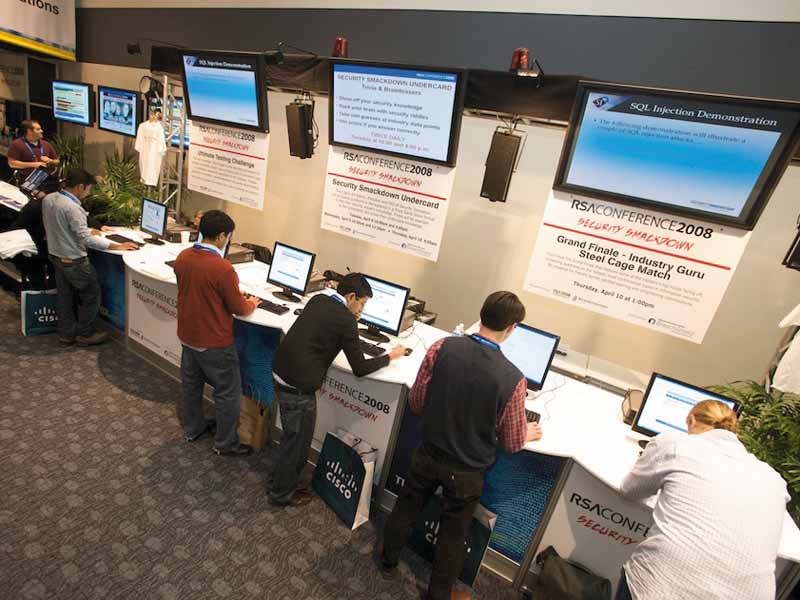
The term hacker may be used to describe people who steal information from computers, but that's just the dark side of the story.
Like the cowboy heroes of childhood, there are white hats as well as black, and the former are legal hackers: security professionals who aim to make the wilds of the internet a safer place for us all, tracking down and rounding up the exploits that endanger our computers.
The movie Sneakers features a team of hackers who are employed to show businesses just where their weak spots are.
The film may be a little dated, but security experts agree that it's still one of the best depictions of just how they go about their work, which involves examining both networks and systems to find exploits based on both social and technological weaknesses.
The US Military runs exercises where 'tiger teams' of good guys think like bad guys in order to penetrate secure facilities, testing just how secure they really are.
That's the idea behind network penetration tests, where security consultants are challenged to get inside a system or network in order to find holes, which are then filled with patches, policies or other security measures.
Penetration test teams include people with a wide-ranging mix of different skills, from social engineers and network specialists to hardware and software engineers. The exploits that they find vary, but they all share one fundamental element: they are ways into a network that compromise both data and computer systems.
Get daily insight, inspiration and deals in your inbox
Sign up for breaking news, reviews, opinion, top tech deals, and more.
The making of a legal hacker
Not everyone is cut out to be a security analyst; for one thing, it's not easy to develop that level of professional paranoia. One of the most famous security analysts, Bruce Schneier, tells a story about how as a child he realised that a company that sold ant farms (and mailed out tubes of live ants) could be used to send ants to anyone, anywhere.
That's a very different mindset to that of most of us, and essentially it means looking at the world to see how it can be broken or subverted. A security analyst would walk into a shop and think of three different ways to rob it and another dozen to defraud it. It's a good job that those minds are on the side of good and serve to help protect us against their less than honourable counterparts.
Opportunities are everywhere. You might see a USB charging port at an airport as a quick way of getting your phone or iPod charged between flights, but a security analyst will be counting the connections in the port and wondering just how much data someone could steal from an idle phone using nothing more than a USB connection.
Penetration tests capitalise on that security mindset. White hat hackers working for security companies attempt to use their skills (and the tools that the black hats use) in order to find ways into a business network.
If you're running a big network that carries data that needs to be secure, you're likely to need certification from one of the big security consultancies before you'll get any insurance – and that certification is going to require one or more major penetration tests.
These tests aren't simply restricted to the computer side of things. Network security is about people, policy and technology. While you may be thinking about encrypting your network traffic and using two-factor authentication, your penetration testers may well be gaming your social network, tracking down backdoors into your network through staff who might have forgotten passwords one time too many and tailgating their way into the office building.
The slightest crack in your network's armour and all the passwords in the world are rendered next to useless for keeping that precious data safe.